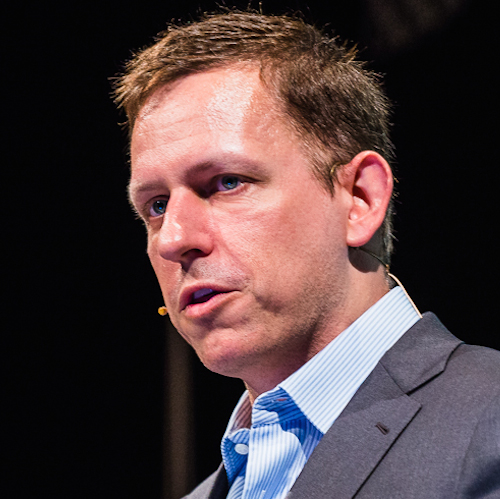Sign up for The Media Today, CJR’s daily newsletter.
If you were one of the estimated 30.3 million people who watched broadcast coverage of Peter Thiel’s speech at the Republican National Convention last week, you would have learned that Thiel is openly gay, a Silicon Valley billionaire, and a Republican.
You would not have heard about Thiel’s moves to secretly bankroll a lawsuit that put the news site Gawker into bankruptcy, or about the Republican party’s extreme anti-gay platform–which suggests, for instance, a rollback of the Supreme Court decision allowing gay marriage.
Thiel was the first openly gay Republican to address the convention, a worthy fact to share. But to audiences unfamiliar with his story, broadcast journalists gave little detail on the contradictions his presence at the convention created. How the media chose to handle Thiel raises questions about coverage of these conventions, publicity stunts designed to push the party’s platform and keep the attention on a pre-set narrative. What is the media’s goal with convention coverage? Do they have a responsibility to provide additional context on speakers such as Thiel that runs counter to the party narrative?
Here are some examples, via transcripts, of how broadcast media introduced Thiel:
Fox News anchor Megyn Kelly:
Speaking right now, billionaire tech investor and entrepreneur Peter Thiel. Mr. Thiel is the co-founder of the popular online payment system PayPal, and an early investor in Facebook. He also is openly gay, and he will be the first person to publicly acknowledge that he is gay at a Republican convention. Many wondering just how far he’ll go with his remarks about gay rights. And different people hoping for different things.
CNN’s Erin Burnett:
A Silicon Valley billionaire is going to take to the stage here in Cleveland at the RNC, PayPal co- founder Peter Thiel is his name. As I said, Silicon Valley billionaire, he is going to say he is gay and he is proud of being gay. He will be the first speaker ever to openly do so, to declare he is gay here on stage at a Republican National Convention and he is going to come out against the party for refusing to embrace LGBT rights.
PBS Newshour political correspondent Lisa Desjardins:
The lineup includes tech billionaire Peter Thiel, a co-founder of PayPal, and Oklahoma Governor Mary Fallin, co-chair of the Republican Platform Committee.
CBS This Morning host Gayle King:
Yesterday, he brought up the LGBTQ community, Q, by the way, stands for questioning, I learned that myself, last night for the first time. People around me going, what does the Q stand for? What does it mean? What does it mean? Were you surprised that he brought that up, especially after Peter Thiel spoke, an openly gay billionaire, that got big applause in the room.
This is not to say that no one acknowledged Thiel’s unusual role. Some made passing remarks about his involvement in the Gawker lawsuit, and many print and online publications dedicated more time to the perplexing issue, but few went in depth to break down the significance of the case.
Thiel put up $10 million to fund a lawsuit against Gawker brought by Hulk Hogan, who was suing the company because he objected to the site’s decision to post portions of a sex tape. Hogan won a $140 million judgment in the case, and Gawker filed for bankruptcy as it appeals. Thiel supported the fight because Gawker published an article that exposed his sexual orientation back in 2007. Gawker’s stance was they were not responsible for outing Thiel because many of his friends and coworkers were aware, and so the news was fair game.
Some conservatives, who view Gawker as a gossipy champion of liberal causes, have cheered Thiel for taking on the site and celebrated its bankruptcy filing. But media watchers have described the billionaire’s actions as a disturbing assault on the First Amendment, and they wonder who he might target next. While few would disagree Gawker is guilty of poor journalistic behavior, it has become a symbol of a shadowy war on the press.
In his speech, Thiel acknowledged he is gay and noted he does not fully support the Republican Party platform, but said there are more important issues that the party needs to unite on and deal with first. He said he supports Donald Trump because he’s “a builder” and a candidate willing to be honest about the problems the country faces. Thiel, though, made no reference to his animosity toward the press, another position he shares with Trump. Audiences without the back story would have benefited from the context.
Has America ever needed a media defender more than now? Help us by joining CJR today.



